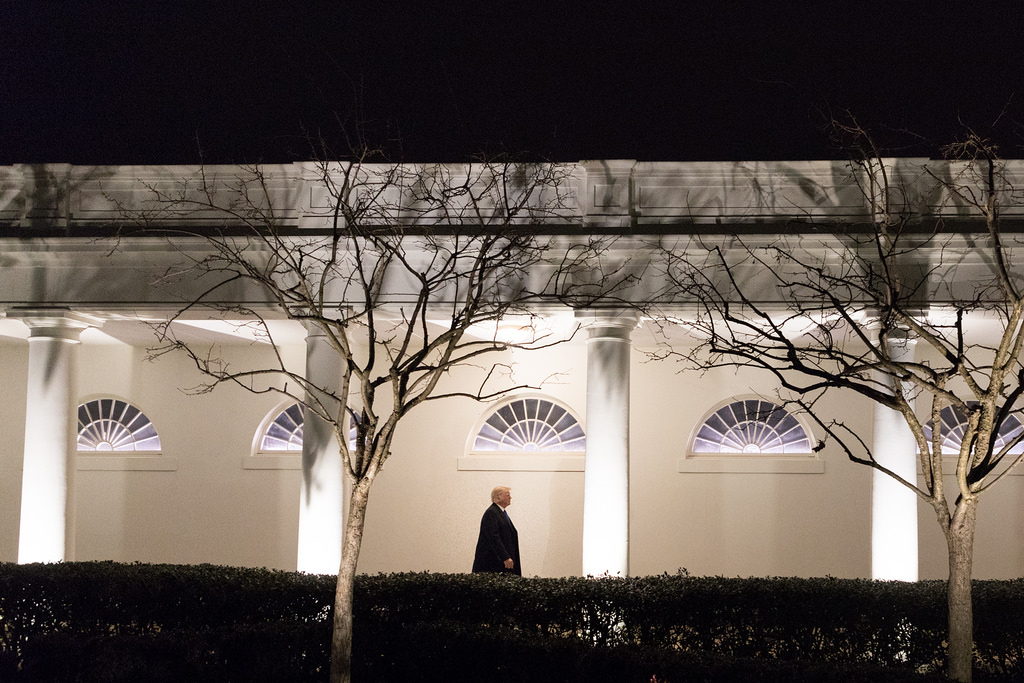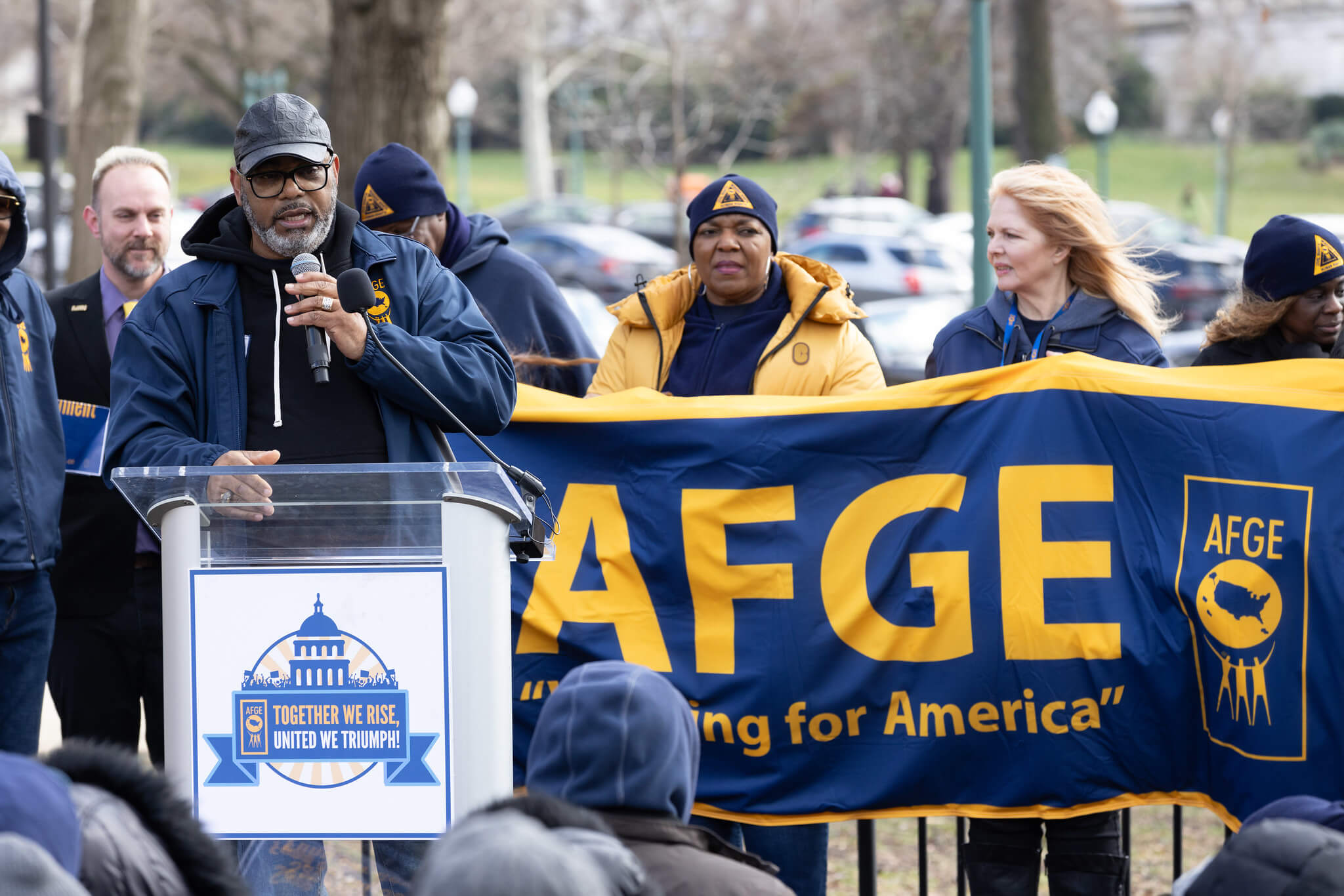The President-as-Plaintiff, the Republican Party and the Battering of Norms
President Donald Trump’s resort to threatened litigation against Steve Bannon and the author and publisher of Fire and Fury brought more attention to the book but it did not, and could not, succeed in suppressing the book’s publication. More to the point, this move was also grossly inconsistent with the responsible conduct of his office.

Published by The Lawfare Institute
in Cooperation With

President Donald Trump’s resort to threatened litigation against Steve Bannon and the author and publisher of Fire and Fury brought more attention to the book but it did not, and could not, succeed in suppressing the book’s publication. More to the point, this move was also grossly inconsistent with the responsible conduct of his office. It is another instance of how this president, wholly inexperienced in government, relies recklessly on his tried-and-true Trump Organization tactics in dealing with challenges that he is able to understand only in the most personal of terms. Worse than a tantrum, this is a dereliction of duty and yet another blow to democratic norms.
The problem here is not, as some have suggested, the “misuse of presidential powers,” or the deployment of “the legal and media artillery” of the White House to avenge himself on a political adversary. After all, at her press briefing, White House Press Secretary Sarah Huckabee Sanders was clear in saying that the threat of litigation was not official, it was personal: The lawyer letters were “not from the United States government, [but] from the president’s personal attorney.” And there are reports that the president was primarily provoked to this action by the book’s claims about his family and business. Analogies to the Nixon administration suit to block publication of the Pentagon Papers are, therefore, off the mark. Richard Nixon’s motives may been dangerously mixed and the choice he made profoundly misguided, but he would insist that he was taking legal action in the long-term national interest. Donald Trump’s call to his lawyers was not about official business: it was personal, and the difference between two eludes him.
What Trump fails to appreciate--what he seemingly will not accept--is that the presidency requires him to subordinate his personal issues, impulses and interests to his public role. It is not open to him as president to use the legal process, even if privately funded, to settle political or personal scores. This is not a question of etiquette or best practice, but of what minimally responsible and ethical conduct in office requires.
Any lawsuit would, of course, have serious consequences for the performance of his official duties. Every development in the case—each discovery request, conflict over scheduling, leaks from depositions or document productions—increases the visible cost to the president’s standing and effectiveness. As has been noted in early comments on the case, a defendant has all sorts of tactics and tools at her disposal to visit hell on the plaintiff. The discovery process by which parties press for damaging or embarrassing information runs both ways. It also could not fail to affect the staff and personal associates who are caught up in the conflict and adversely affected in doing their own jobs. These are not problems just for the parties and the witnesses: They are a major stress on the government.
A president facing civil litigation would normally defend by pleading the crippling effects of litigation on the conduct of the public’s business and seeking all manner of accommodations on scheduling and other procedural issues. What remains of this argument when the president is the one who files suit? The president who is starting a fight cannot then complain that he should be protected from the consequences. In effect, he is saying that he has plenty of time to spare for personal quarrels with former allies and staff. The courts would be inclined to take him at his word.
A president is also charged with tending carefully to the disciplined exercise and preservation of his authority. On this score, too, Trump is failing abysmally, regardless of whether he sues. Presidents don’t threaten to sue, or sue, critics. They don’t threaten to sue, or sue, the publishers of their criticism. They don’t do either the one or the other because the individuals holding this office don’t use the law they are sworn to conscientiously and impartially uphold to reward friends and punish enemies. While this constraint applies with special force to the abuse of government legal power, it also encompasses the pursuit of “private” legal claims. Presidents don’t conserve their unique capital by shows of pettiness, vindictiveness or a preoccupation with personal affronts.
In setting out the basis for their claim of defamation, Trump’s lawyers cite New York case law about the adverse effects of false statements on Trump’s reputation in the community. Their claim of invasion of privacy stresses liability for “exaggerations” and “distortions” of otherwise truthful material that put him in a “false light.” Of course, presidents constantly face calculated threats to their reputations by exaggerations and distortions that may cast this “false light” over them. It comes with the territory. Say as he might—or as his press secretary has—that this is a personal matter: The personal/public distinction will be lost on a public observing a chief executive dispatch legal teams to attack those who have offended him.
And it does not help Trump’s cause to conceive of these threats and any lawsuit that may follow as more a loss of self-control than a considered, if mistaken, move against an adversary. Whether it is the one or the other, or a combination of both, it is dangerous and irresponsible behavior in a president. Critics of Trump and Bannon who relish their mutually destructive clash, should consider how this behavior might be unleashed against other, more sympathetic targets.
We are back to the question of norms in this presidency—fundamental conceptions of the office, and the informal rules associated with them, that should govern how Trump and those around him discharge their duties. This is the latest illustration of how little Trump grasps these norms. Or he has contempt for them, discerning virtually no distinction between the requirements for running his licensing and entertainment business, and for running the United States government. The president’s choice to use “his lawyers” to pursue “his” legal claims may seem a familiar preoccupation with purely personal concerns. It is virtually identical in its reasoning to Trump’s judgment that he can keep his private business interests intact and even promote them with regular visits to his various properties.
Does it matter if the threatened lawsuit never materializes? A lawsuit is surely worse than the threat of one. Yet the threat, conveyed in the most formal terms by his legal team, is an appalling precedent to have set.
In previous posts, I have suggested that Trump displays a demagogic leadership style characterized by the pathological personalization of his office. Of primary importance are his personal ends and ambitions: those ends justify the use of virtually any means. If to make a point or to inflict a penalty for crossing him, he feels he must climb down from the presidency to threaten litigation and perhaps become a litigant with no apparent concern for the costs to the institution, then that is what he will do. Norms are meaningless to the demagogue, who delights in ignoring them or who views them, as his chief of staff recently affirmed, as an impediment to running things as he would like.
Now the problem might be seen as only Trump’s, a problem to last as long as a presidency in which this most unusual occupant routinely confuses personal whim with official prerogative. One might imagine that democratic norms will not suffer permanent damage, only a temporary bruising until the next president takes office. On a more pessimistic note, what is once done stands a very fair chance of repetition. The presidents who follow Trump may bring to government no more experience and also fall back in running the government on whatever they learned in the private sector pursuits that earned them their wealth and public notice. The “insider-outsider” dynamic of contemporary politics rewards the candidates who profess contempt for government. In their understanding of government, “norms” are simply biases built into the system, the rules by which the insiders set the rules for their own benefit.
The damage to norms may begin with Trump’s personal outbursts and inclinations, but it does not end there. The acquiescence of congressional Republicans in the president’s conduct, which has sometimes risen to active support, elevates the attack on norms beyond an expression of Trump’s eccentricities. Not a single senior Republican member of Congress has raised a question about the president’s use of threats of litigation against political adversary Bannon or media critic Michael Wolff.
Nor have Republicans dissented from the president’s suggestion on Saturday, which he has made before, that the libel laws should be revised to ease the way for politicians to sue their media critics. Trump has not simply tossed out the possibility. Last May, his chief of staff declared that it was being seriously considered. However absurd the proposition that this president could successfully change the libel laws, it still mattered that he said it, and that his party did not stand against him.
While the president’s party’s silence is less than a clear-cut endorsement, it also allows these assertions—and in the case of the threat-to-sue letters, actions—to stand unchallenged, not clearly and explicitly branded as beyond the pale. The message to the public is: A president can—and maybe should—do this. And indeed most of the commentary has focused on the more prosaic questions of whether the president will in fact sue, and of his prospects for success if he did.
At the same time, senior Republican leaders are openly supporting the president in a vigorous attack on another norm that is, for this president, personally threatening and therefore intolerable. He is raging against disloyal attorneys general, FBI directors and runaway special counsels who would not allow recusal rules or independent investigative judgments to stand in the way of protecting him. Months ago, congressional Republicans mostly declined to help him undermine the norm of executive respect for independent law enforcement. This has changed. What is for Trump a compulsively personalized politics is more and more his party’s politics in which the Department of Justice is discredited as an organ of the deep state.
It is too easy, perhaps because it is reassuring, to believe that Trump’s inability to separate his personal preoccupations and grievances from his official responsibilities is an isolated moment in the presidency: “just Trump.” But he is beginning to normalize the abnormal with the collaboration of the political party he leads. The effect is to put the norms under more direct, systematic and damaging assault than the president alone, in fits of pique and spasms of rage, could ever manage.




.jpg?sfvrsn=407c2736_6)
